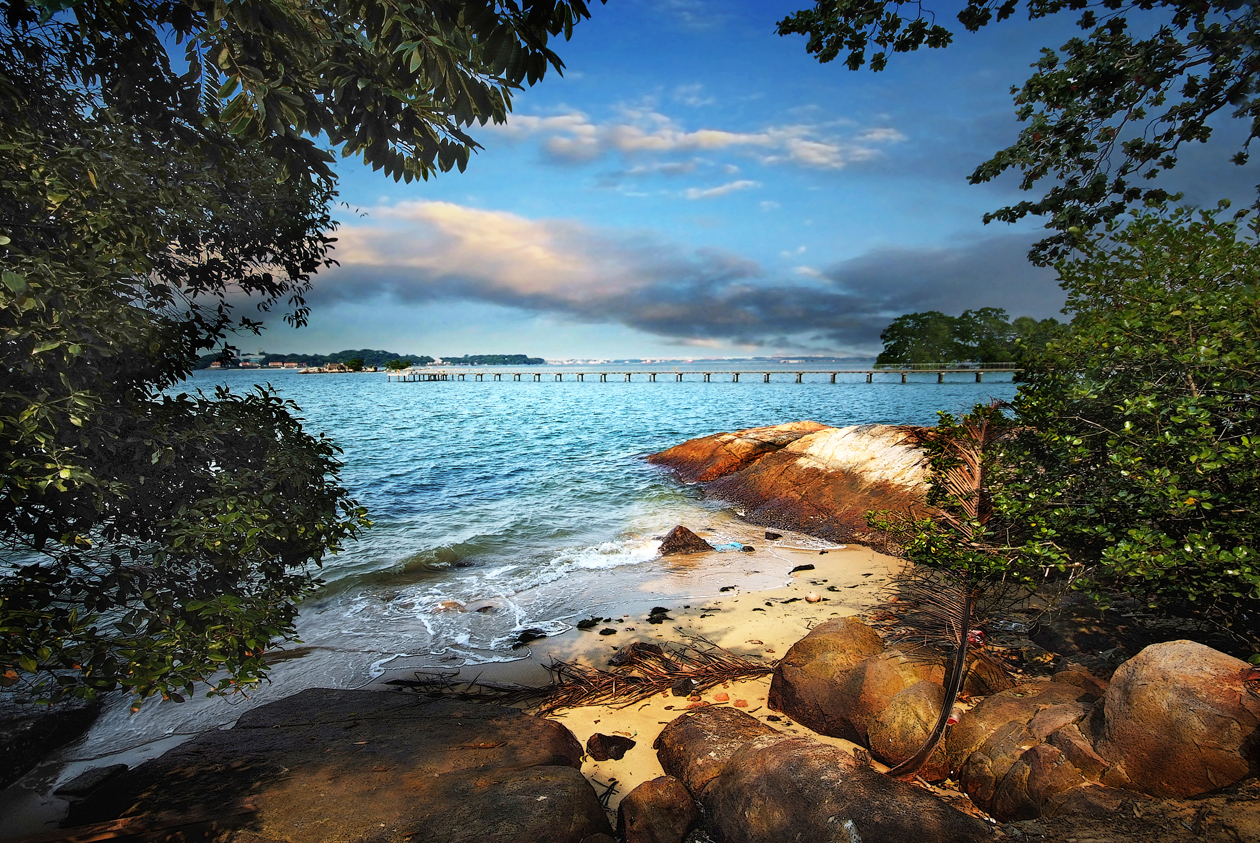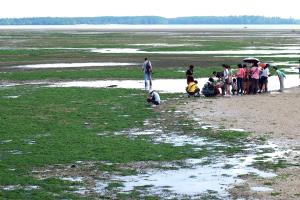For Singaporeans who are used to a government who can do no wrong has never been afraid to do the right thing, the renaming of the World War II exhibition at Former Ford Factory at Upper Bukit Timah Road, was a rare example of the government's U-turn updating of its stance after receiving public feedback.
The change was a sign of the government being responsive to ground sentiments, despite standing its ground initially.
As what Prime Minister Lee Hsien Loong said in his Facebook post:
1. Graduate Mother Scheme
When: June 1984 - mid-1985
What was the controversy about?
[caption id="" align="aligncenter" width="768"] A female graduate posing for a photo with then President Devan Nair at an NUS convocation ceremony in 1983. Source: NAS[/caption]
A female graduate posing for a photo with then President Devan Nair at an NUS convocation ceremony in 1983. Source: NAS[/caption]
The Government's successful birth control policies of the 1960s and 1970s resulted in a significant drop in the population's fertility rate. By 1980, population growth had fallen below replacement level — to 1.5 per cent, from 2.8 in 1970.
The 1980 Census had also shown that many better-educated women were not marrying early, and those who did marry were having fewer children than less educated ones.
In 1983, then Prime Minister Lee Kuan Yew spoke about the issue at his annual National Day Rally, which became known as the "Great Marriage Debate"
"If we continue to reproduce ourselves in this lopsided way, we will be unable to maintain our present standards. Standards of competence will decline. For how can we avoid lowering performance when, for every two graduates... in 25 years' time, there will be one graduate, and for every two uneducated workers, there will be three?"
[caption id="" align="aligncenter" width="768"] Lee Kuan Yew speaking at the 1983 National Day Rally at the National Theatre. Source: NAS[/caption]
Lee Kuan Yew speaking at the 1983 National Day Rally at the National Theatre. Source: NAS[/caption]
The scheme provided financial benefits and special school enrolment privileges for graduate mothers having more than two children.
It also offered incentives for the voluntary sterilization of women with lower education, who had at least one child and whose total household income was below a specific level.
The U-turn response:
The highly unpopular scheme was dropped after a year. It became an issue taken up by the opposition in the 1984 elections, costing the People's Action Party government politically, with a 12-percentage-point drop in votes. It was seen as engaging in eugenics and meddling in the affairs of the bedroom.
2. Chek Jawa Reclamation
When: May 2001 - January 2002
What was the controversy about?
Chek Jawa is an intertidal flat located at the remote eastern-most tip of Pulau Ubin.
[caption id="" align="aligncenter" width="1260"] Chek Jawa. Photo from Wikipedia by William Cho[/caption]
Chek Jawa. Photo from Wikipedia by William Cho[/caption]
Although only about a square kilometre in size, it is a collection of six distinct habitats -- coastal forest, mangrove, sandy beach, sand and mud flats, coral rubble and a tiny island called Pulau Sekudu, or Frog Island.
In 1992, the Urban Redevelopment Authority (URA) had approved a plan to reclaim the eastern tip of Chek Jawa. The reclamation was meant to create “reserve land” that would eventually be used for military training.
The issue was brought to public attention for the first time in May 2001, when botanist Joseph Lai spoke up about Chek Jawa at a land use forum chaired by then Minister for National Development Mah Bow Tan.
The Chek Jawa issue was reported in the media, prompting letters to the press from both members of the public and nature groups, advocating for its preservation.
On 27 July 2001, the URA replied in The Straits Times forum, that reclamation of Chek Jawa would proceed as planned.
[caption id="" align="aligncenter" width="300"] Chek Jawa. Source: NParks[/caption]
Chek Jawa. Source: NParks[/caption]
The U-turn response:
The reclamation of Chek Jawa was deferred following a strong campaign mounted by nature lovers and conservationists.
The Ministry of National Development (MND) announced on 20 December 2001, a few days before the reclamation was scheduled to begin, that the reclamation would be deferred "for the time being" so that relevant experts could be consulted.
Subsequently, a press release on January 14, 2002 announced that reclamation would be deferred "for as long as the island is not required for development".
In the words of Straits Times columnist Chua Lee Hoong:
"It was not so much about a policy turn-around but a turning point in the relationship between state and civil society.
It was a day the Government proved itself responsive to public feedback, a day it showed itself open to the merits of persuasive argument from citizens.
It was a victory for civil society but, with the many public commendations heaped on the ministry in its aftermath, it was also a sweet day for the Government. This, surely, is a what a win-win is all about."
3. PSLE Mother Tongue Weightage
When: April -- May 2010
What was the controversy about?
Then Education Minister Ng Eng Hen had indicated in a media interview that the high weighting given to Mother Tongue languages in the Primary School Leaving Examination (PSLE) was under review and could be reduced.
Ng's tentative suggestion received support from English-speaking families, whose children could potentially be penalised by poor Mother Tongue grades in the PSLE.
 Source: MOE Facebook
Source: MOE Facebook
However, it also sparked extremely strong negative reactions, not just from Chinese-educated community leaders, but also from young bilingual professionals who have benefited from the emphasis on both English and Mother Tongue.
The Malay community also voiced fears that Mother Tongue standards would deteriorate further.
On May 9, 2010, Mother's Day, some 2,500 people visited Speakers’ Corner in a highly symbolic move, to sign a petition against the possible reduction to the weightage of Mother Tongue in the PSLE.
The U-turn response:
The controversy was serious enough for Prime Minister Lee Hsien Loong to put out a statement on May 3, 2010 to reassure the public and meet the press together with Ng on May 11, 2010.
PM Lee had to clarify what Ng did not make clear in his interview: The weightage of Mother Tongue in the PSLE would not be lowered, but what would change was how Mother Tongue languages were taught and examined.
And in it PM Lee saw a silver lining:
"I see a positive side in the public responses. There has been agitation and there has been fear and I think we need to calm this down. But there has also been strong support for the Mother Tongue languages which in fact reflects the success of our bilingual policy.
Had it not been for the bilingual policy producing a whole new generation of Singaporeans who are competent in and proud of their Mother Tongues, I do not think we would have had this reaction. "
Here's a series of MCQs you need to try because they're that good:
10 modern day mathematics questions that schools should use to prep students for the cruel world
Top photo from flickr
If you like what you read, follow us on Facebook and Twitter to get the latest updates.
